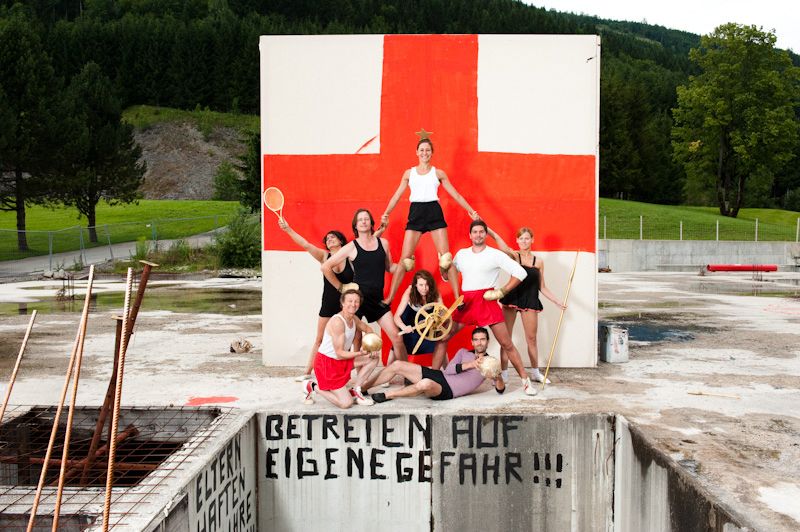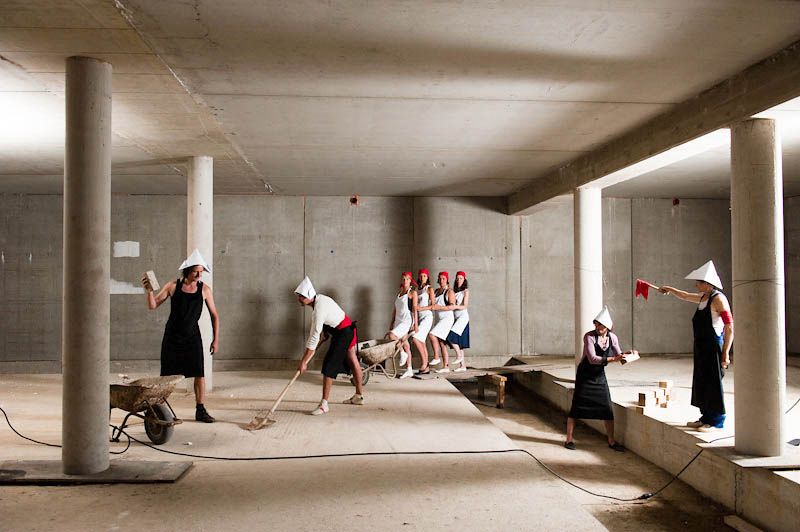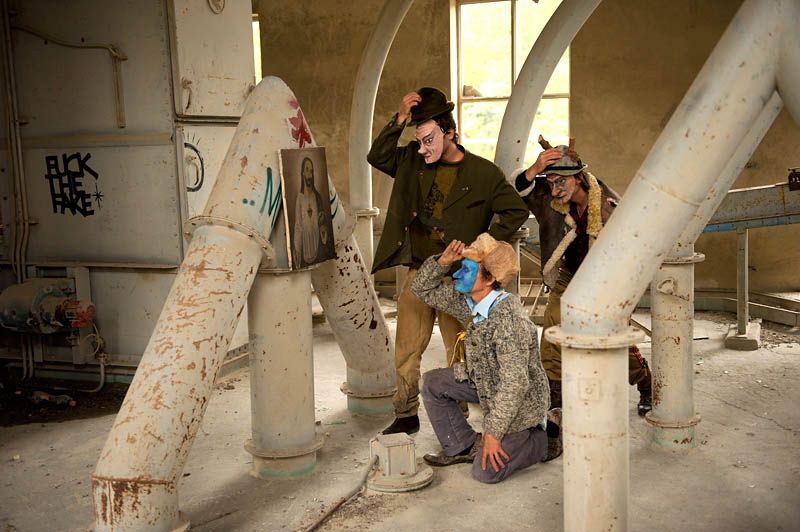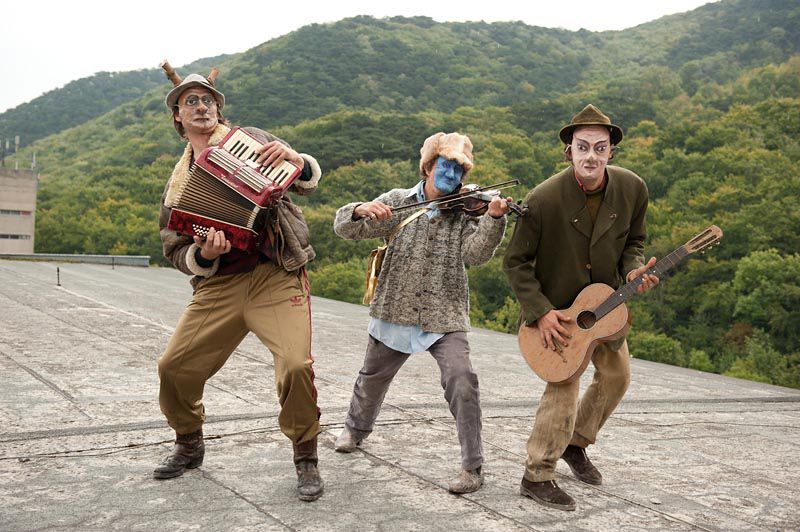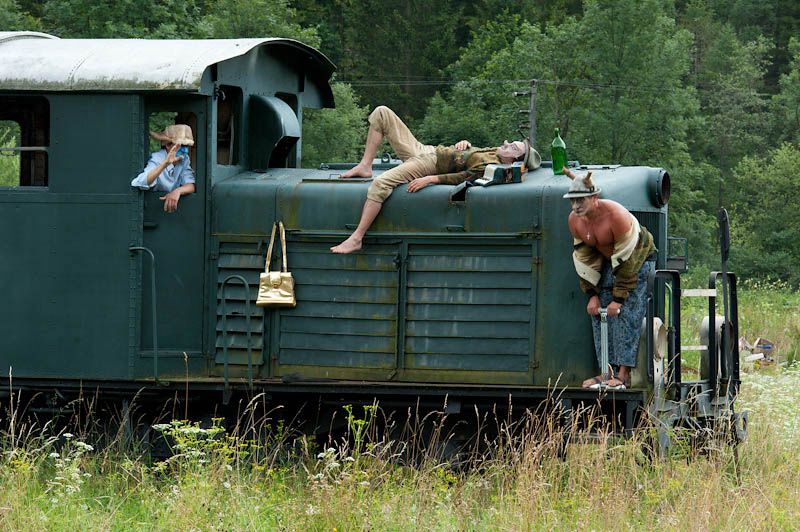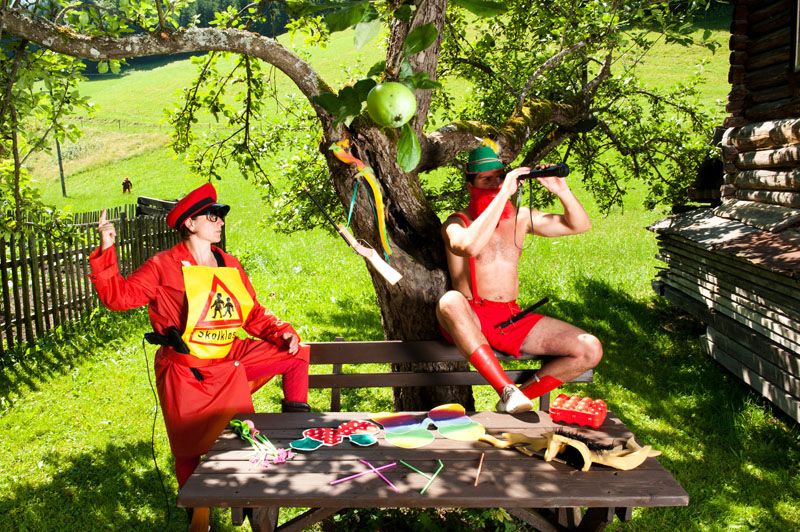Aleksander Petlura
:
Zeit und Raum sind gestern gestorben. Götter, da seid Ihr!
Back
Information
In summer 2010, to mark the annual wellenklänge music festival the Muscovite performer Alexander Petlura called for artists, musicians and actors to collaborate on the development of a neo-futurist manifesto. In a two-week conception phase in Lunz the opera project was developed entitled Zeit und Raum sind gestern gestorben. Götter, da seid Ihr! (Time and Space Died Yesterday. Gods, There You Are!).
Participating artists: Valentin Aigner, Piotr Aidu, Schorsch Böhme, Tano Bojankin, Roman Britschgi, Ida Davinzenz, Aleksandra Davydova, Lubomir Gospodinov, Oleksii Ludnikov, Fiona Liewehr, Anna Litkens, Moritz Muhrhofer, Philipp Nussbaumer, Aleksander Petlura, Aleksandra Rebenenok, Jörg Reissner, Ekaterina Ryzhikova, Matthias Schweiger
101 years after the publication of the Futurist Manifesto the aim was to have a look at the social changes of the 20th century that are tied to technological changes, and to develop a counter-model to the former fascination with acceleration and the power of machines. From the instruments to the decoration, everything was created on location applying Petlura's well-known mania for the re-use of found material. Daily performances by the group, who emerged and then disappeared during the course of the festival, announced the event, which was finally held on and in a car park that had remained a skeleton in the centre of town for years. In three acts, the audience was led via an organ concert in the church to the venue, which the Industrieorchester turned into a body of sound. Tableaux Vivants received the audience in the basement of the building, and moved into speech theatre that parodied the hysteria of the consumer society. Finally, with a dance performance that evoked cleaning rituals, the route led back outdoors — "back to nature".
(Cornelia Offergeld)
